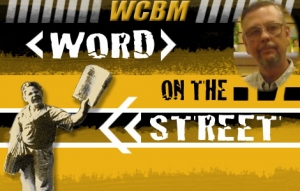Commentary By Steve Smith

The move by Baltimore to raise the minimum wage to $15 per hour over the next 6 years should be defeated. Based on the exemptions, among others, for smaller businesses with less than 25 employees or businesses with a gross income of less than $500,000, it would give an unfair advantage against larger companies. Also, these exempt businesses would hire and train employees only to have them leave for a larger company doing the same work at a much higher wage, forcing the small business to become simply a training ground with no continuity of an employee base. Larger companies subject to the forced increase would do one of two things: Raise their prices to compensate for the increased costs of their payroll, or simply move out of Baltimore where the minimum wage is based on prevailing Federal law. This would be just one more nail in the urban Baltimore coffin. We cannot hope to legislate prosperity for the bottom rung of the work force, it should be earned through merit. Let the marketplace dictate a wage that will attract quality personnel. Flipping burgers at McDonald’s should not pay more in the city than in surrounding counties simply because it was legislated.
Baltimore City Council kicks $15 minimum wage bill back to committee
The Baltimore City Council met Monday for a vote to raise the minimum wage to $15 an hour.
With eight “yes” votes, six “no” votes and one passing vote, the bill has been pushed back to committee Monday evening.
The vote to move the bill to the final reader was close, with seven “yes” votes and four “no” votes last Monday. Three council members abstained and one was absent.
The move to send the bill back to committee kept it from being defeated.
“It’s alive and well now, it’s safe in its nest in Councilman (Robert) Curran’s labor committee,” Councilwoman Mary Pat Clarke, the bill’s chief sponsor, said.
Clarke stopped short of calling the move back to committee a stalling tactic to gain support. She said the National League for the Blind took issue with one of the bill’s amendments.
“They insisted that it had to be clarified and that it had to be done in the original model bill, so I said, ‘OK, I’ll make a motion to send it back to committee to be heard and to be adopted.’” Clarke said.
If passed, wages would have risen to $9.50 an hour in July and increased $1 every year until the $15-an-hour wage would have been reached on July 1, 2022.
City youth job programs are exempt from paying the higher wage, as are businesses with a gross income of $500,000 or less, or less than 25 employees. Workers at the Maryland Zoo, full-time primary and middle-school students, work-study students and interns also would not earn $15 an hour.
The City Council remains divided on the bill.
Last week, Councilwoman Helen Holton was one of three members who abstained from the vote to move the bill to the third reader. Councilmen Pete Welch and Carl Stokes also did not cast votes on moving the bill to the third reader last week.
Stokes, who is chair of the Taxation, Finance and Economic Development Committee, said the current federal and state minimum wages are poverty wages for workers.
In a statement released Monday afternoon, Stokes said the current bill to raise the minimum wage to $15 by 2022 is extremely misleading and does not do enough to correct the wage disparity or strike a more appropriate balance.
Stokes said the city and its workers would be better served by a bill that does not eliminate about 83 percent of all businesses from the proposed law.
“Put those businesses back in the equation by passing a wage that is tied to economic indicators for workers and businesses. Rather than the arbitrary $15 an hour wage by 2022. Let’s get workers to $11.50 an hour by the year 2018, a number that most closely approximates our current living wage. Instead of exempting almost 90 percent of businesses who have less than 25 workers. Let’s include all small businesses.
“The City Council can tie future wage increases to an economic indicator i.e. the rate of inflation. Baltimore need not pass a law that puts it minimum wage at $4-$5 above every other state jurisdiction while, in fact, exempting the greater majority of the workers from receiving the increase. This presents a cruel and false hope to workers. Let’s fix this and gain strength for our working families,” Stokes said.
City Council President Jack Young said he is not supporting the bill because he believes it will hurt Baltimore’s economy since other neighboring jurisdictions will only be paying the lower minimum wage dictated by the state.
“Baltimore is one of the poorest jurisdictions in the state, and for us to be $4.90 over the $10.10 for the state I thought was a far stretch,” Young said.
Business owner Jason Rodriguez said he cannot afford to pay his workers $15 an hour.
“It would definitely put me out of business,” he said.
Those who back $15 an hour for the minimum wage said their work does not end with this vote or even with the City Council.
“We have a new council that’s coming in that’s replacing a lot of the folks that are actually against this bill and have decided that they’re going to be progressive and that they’re going to represent the workers of this city,” Ricarra Jones, a political organizer with 1199 SEIU said.
The bill has to be moved out of committee by a majority of the council. Curran said the bill will not be returned unless it has eight votes on the floor.
As reported by wbal.com
